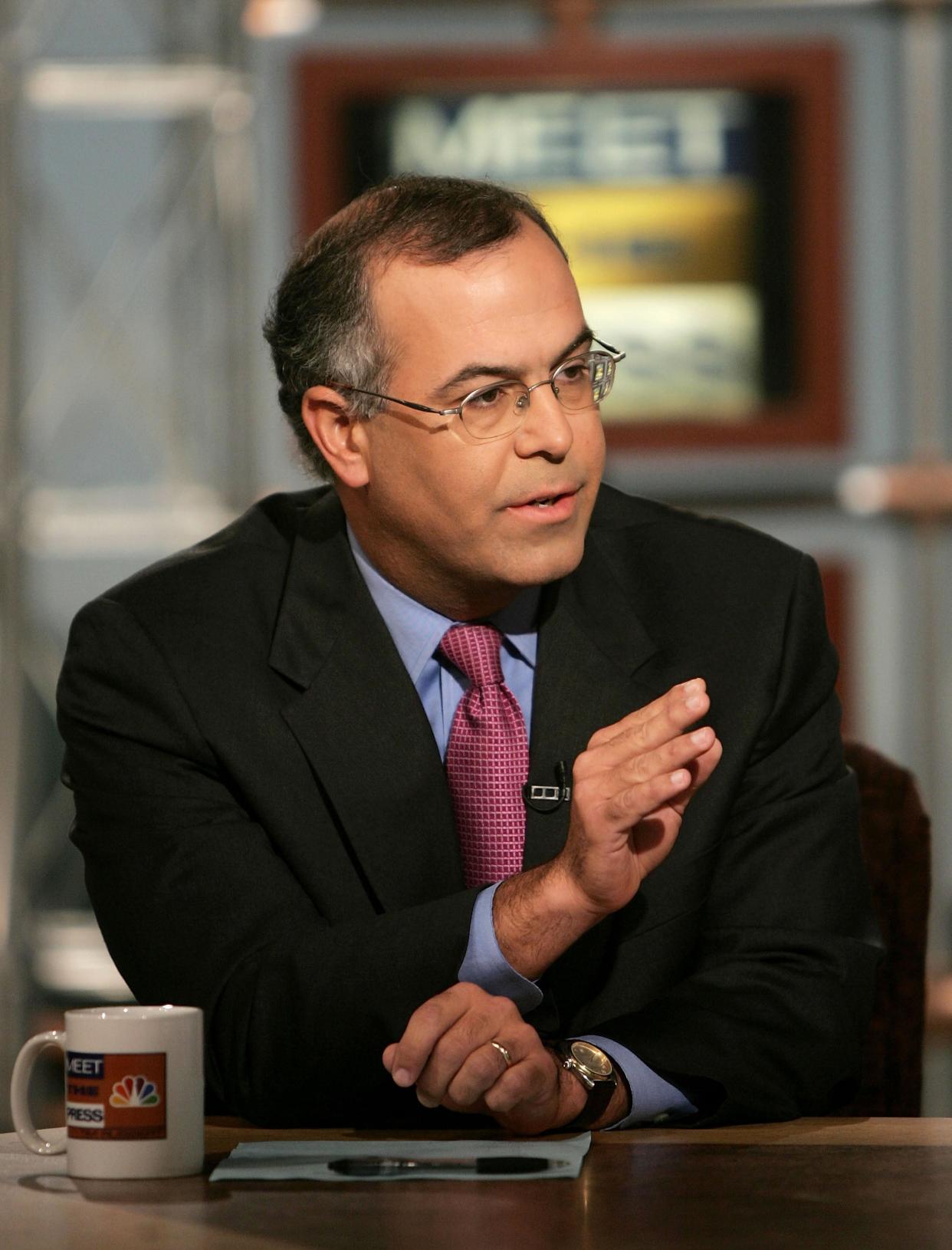NYT columnist David Brooks under fire for drawing second salary from a project funded by Facebook

WASHINGTON - SEPTEMBER 25: New York Times columnist, David Brooks, gestures while speaking on NBC's
(Getty Images)" />
The popular New York Times columnist David Brooks didn’t disclose to readers he was drawing a second salary from a think tank project partially funded by Facebook, even as he wrote pieces promoting the work and covering the social media giant, Buzzfeed reported on Wednesday.
Mr Brooks is chair of the Aspen Institute’s Weave project, which started in 2018 and aims to promote more social cohesion. Facebook has given $250,000 to the Institute to support the programme. The columnist both promoted Weave and talked about Facebook in his many articles in the Times’ opinion section, but didn’t disclose his full relationship to the project to readers.
The Times did not confirm to Buzzfeed whether it was aware of Mr Brooks’ paid work for Weave, or that Facebook partially funded the project.
“We’re in the process of reviewing David’s relationship with the Weave Project and the Aspen Institute, and what disclosures, if any, should be added to David’s columns going forward,” Eileen Murphy, the senior vice president of corporate communications for the Times, told the site.
Mr Brooks, Facebook, andThe New York Times did not respond to requests for comment from The Independent. The Aspen Institute declined to comment, but said Facebook “has provided financial support to the Aspen Institute for years.”
Other prominent funders of the project include Miguel Bezos, the father of Amazon CEO Jeff Bezos, and James Schine Crown, an Aspen trustee on the boards of aerospace company General Dynamics and JPMorgan Chase.
It’s the latest question being raised over Mr Brooks’ relationship with Facebook, after Buzzfeed previously reported that he wrote a blog post for the company’s website to accompany the release of a study into Facebook Groups, which the Times said it was unaware of.
Other prominent New York Times writers have outside positions like Paul Krugman, the economist, who is a professor at the Graduate Center of the City University of New York.
The Times, perhaps the most prominent American newspaper, has been embroiled in increasingly public scandals about the normally insular world of newsroom operations.
In March, a Times health reporter resigned about a month after a Daily Beast article revealed that several high school students had accused him of using a racist epithet during a 2019 guided trip through Peru, part of a now-defunct program called New York Times Student Journeys. Donald McNeil Jr later said he had quoted someone else using the word during a discussion about racism.
In January, a reporter was fired after tweeting she had “chills” watching Joe Biden arrive in Washington ahead of the inauguration, which conservatives attacked as a sign of bias at the paper.
Prior to that, in 2020, there was the messy departure of a top opinion editor and writer, as journalists in the newsroom argued over how to balance publishing diverse opinions without empowering racism or those who advocate for violence.
Read More
Ex-New York Times reporter breaks his silence over N-word accusations
New York Times: ‘Caliphate’ podcast didn’t meet standards
Writer and editor Bari Weiss leaves New York Times over 'bullying' and 'harassment' from colleagues

 Yahoo Movies
Yahoo Movies 
